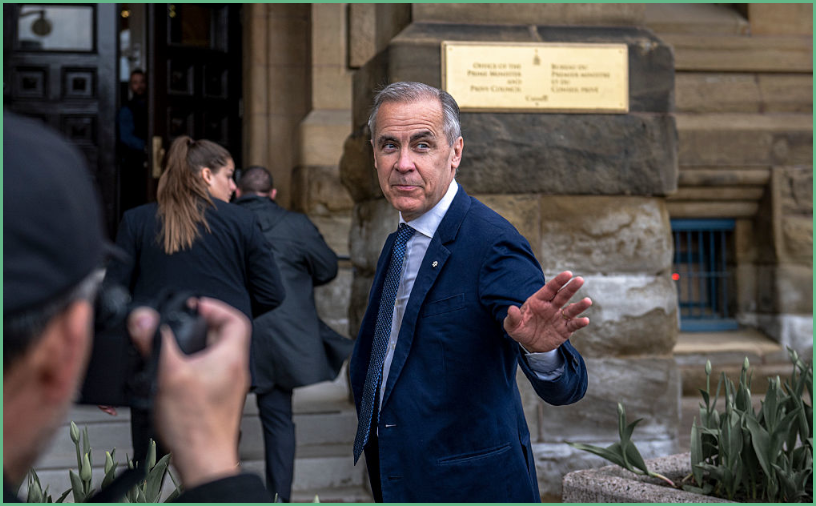Canada’s $81 Million Abortion Fund: A Political Payoff?
Canada’s new $81 million abortion fund has set off alarm bells among conservatives and pro-life advocates, and for good reason. Jack Fonseca of Campaign Life Coalition said it could be a self-serving scheme to create jobs for Liberal allies and funnel money back to the party. That claim demands scrutiny because when government hands out large sums, politics and patronage often follow.
This isn’t just about policy; it’s about process and accountability. A healthy democracy needs transparency when public money is redirected into new programs, especially ones with strong moral and social consequences. Conservatives should push for audits, clear spending criteria, and strict oversight before any cheque is cut.
The fund is being sold as a remedy for access gaps, but the questions pile up faster than the rhetoric. Who will run the clinics, who gets contracts, and how will outcomes be measured? Without answers, taxpayers are left funding an opaque system that could reward insiders rather than solve problems.
When governments create new streams of public money, they often form new bureaucracies and firms that then expect steady work. That predictable result becomes a structural incentive to keep the money flowing, regardless of whether the original need persists. Conservatives see that pattern as the real danger here: mission creep that becomes permanent spending.
There’s also an ideological layer that can’t be ignored. The Liberal narrative frames this as compassion and access, but the policy also reshapes the landscape of health service delivery. In practice, it centralizes control and moves decisions from local practitioners and families to politically appointed boards and contractors.
Practical concerns matter too: provinces already have health systems and budgets. Federal cash can be helpful, but when Ottawa doles out targeted pots, it often comes with strings. These strings can erode provincial responsibility and create dependency on federal largesse that blunts accountability.
Taxpayers deserve to know whether the $81 million will expand services or simply subsidize organizations aligned with the governing party. When government money flows through third-party groups, tracking outcomes becomes murky. Conservatives rightly demand robust metrics and public reporting so citizens can judge results, not just promises.
There’s a broader principle at stake: public funds should serve the public, not political machines. When partisan interests stand to benefit from public contracts, the line between governing and campaigning blurs. That’s why independent oversight and firewalls between procurement and politics are essential.
Beyond procurement, there’s the moral dimension that fuels much of the debate. Many Canadians hold sincere objections to abortion on conscience, religious, or ethical grounds, and sudden federal spending can feel like a dismissal of those views. A respectful democratic approach would allow space for provincial diversity and conscientious accommodation, not a one-size-fits-all federal program imposed from the center.
From a Republican viewpoint, fiscal responsibility and local control should guide any decisions about new federal programs. Redirecting $81 million into a politically charged health area without clear benchmarks violates both principles. Conservatives should insist that any federal involvement be time-limited, transparent, and designed to strengthen provincial capacity rather than replace it.
It’s also reasonable to expect competitive bidding and open procurement to avoid favoritism. Public contracts must be awarded through fair processes that can withstand public scrutiny. If the Liberals are serious about helping people, they should welcome such scrutiny instead of acting defensively when asked to document spending choices.
Media attention and public hearings would help surface whether the fund is targeted at genuine service gaps or at organizations with political ties. Elected officials owe voters a clear explanation of how this money will be spent and how success will be judged. Silence or vagueness only fuels suspicion and cynicism.
Conservatives can offer constructive alternatives that balance access and accountability. One idea is conditional, time-limited funding tied to measurable increases in care where gaps actually exist, with provincial co-investment to preserve local oversight. Another is to fund broader maternal and family services to address root causes, which both reduces demand for abortion and attracts wider public support.
At the end of the day, the $81 million question is not just what the Liberals plan to spend, but why they chose this approach. Is the goal to expand services where needed, or to create a new pipeline of contracts and influence? Citizens deserve a clear, defensible answer that puts results ahead of partisan advantage.
Until that answer arrives, skepticism is a healthy political posture. Republicans and fiscal conservatives should press for audits, clear performance indicators, and a plan to sunset federal spending once provincial capacity is restored. That kind of disciplined oversight protects taxpayers and ensures public policy serves the common good, not the political class.
